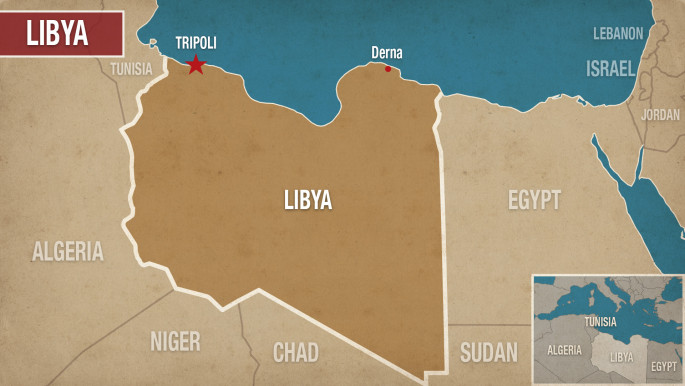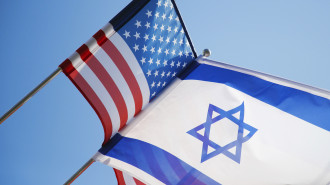Militias in Libya threaten latest peace initiatives
Ongoing attempts to unify Libya are threatened by constant militia attacks across the country, prompting humanitarian and political organisations to call for an arms embargo and for greater unity between warring factions, to allow peace efforts to succeed.
Endless fighting between militias in the capital Tripoli, along with clashes between Salafists and forces from the self-styled Libyan National Army (LNA), and months of warfare between tribes in Sebha, perpetuates a state of chaos. Other factions like IS have taken advantage of the turmoil.
A recent assault on the Tariq al-Mattar refugee camp from the Ghwena Brigade, a group linked to the UN-backed Government of National Accord (GNA) in Tripoli, drew sharp condemnation from both Amnesty International and the United Nations. The camp, near Tripoli, hosts refugees from Tawergha who fled in the 2011 revolution.
Over 1900 refugees and 370 families were displaced, said the UN refugee agency. Civilians report that the militia used collective punishment on the camp, supposedly an act of political revenge. Around 100 people were arrested, with a dozen reportedly held in dismal conditions.
"The armed group told people to vacate the camp as bulldozers sat poised to demolish everything. Now, former residents tell Amnesty International, the camp is empty. Families have taken from their belongings what they can and have nowhere to go," said Najia Bounaim, Amnesty International's North Africa Campaigns Director.
Libya fell into civil war after 2011 when long-time strongman Muammar Gaddafi fell after the Libyan revolution and NATO intervention overthrew him. Rival governments and militias have since sought to control the country, leading to various abuses in the process.
Read also: Foreign militants are taking over Libya's Fezzan region
In May this year, leaders from the four main factions in Libya met in a summit in Paris, along with representatives from the UN, EU, African Union and Arab League, to discuss holding elections in December.
However, with the persistent threat of rivalling militias, these peace efforts will be jeopardised.
"Militias have the power to make or break the peace process, they are the main power-holders on the ground. It is often said that the lack of provisions for militias is what made the LPA an ineffectual agreement, and indeed it is militias who the GNA are currently beholden to," Tarek Megerisi, Libya analyst at the European Council of Foreign Relations, told The New Arab.
The UN has repeatedly warned that armed militias will harm the peace process in Libya. In August, UN experts said: "predatory behaviour of armed groups posed a direct threat to Libya's political transition."
|
Militias could target the Libyan Investment Authority, National Oil Corporation and Central Bank of Libya. In June, the Benghazi Defence Brigades deliberately targeted an LNA-controlled oil refinery. Attacks on these vital institutions could further destabilise Libya and harm the state-building process.
The UN experts also addressed that militias' presence creates lawlessness and further friction between different factions and communities.
"Armed groups are responsible for targeted persecutions and serious human rights violations, which are deepening grievances among some categories of the population and ultimately threatening long-term peace and stability in Libya."
Despite a UNSC arms embargo in Libya, countries like Russia, UAE and Egypt provide military and other support to Khalifa Haftar's LNA, with other countries supporting different militias. Not only has the LNA previously rejected a diplomatic solution, weapons often fall into the hands of smaller militias.
"It's an inevitability that any extra arms entering the country will find their way into militia hands or be used in large scale conflicts between the different, larger forces (which are really just alliances of militias anyway)," said Megerisi.
The UNSC arms embargo should be more tightly enforced to reduce the militarisation of Libya's crisis.
The LNA have also carried out various abuses in its bid to establish control over the whole of Libya. In its assault on Derna this year, it besieged the city, preventing many goods from entering and civilians from fleeing. The LNA, who rejects the Libyan peace process, will conceivably continue such abuses.
 |
|
"[Militias] are the real holders of power, whether we like it or not. There should be much more attention by the international community and the UN mediators on a security track that deals with the issue of disarmament and reintegration of the militia men," Karim Mezran, Senior Resident Fellow at Rafik Hariri Centre for the Middle East, told The New Arab.
"If the security situation is not at least contained there will not be a positive solution."
The GNA rely on militias for security, yet many of them also commit severe abuses. Along with the Ghwena brigades, the Radaa forces have committed violations like arbitrary arrests and detentions, abductions, and ransoms of up to hundreds of thousands of dollars – often to put political pressure on opponents.
The GNA should push militias under its wing to abide by humanitarian principles and hold perpetrators of crimes to account, and seize weapons from violent militias, Amnesty International recommends.
The international community should also push the GNA to ensure that human rights are upheld in areas it operates.
Unifying the various factions into a future national security service, army and police force is essential in stabilising Libya. Not only would this prove a challenge by itself, the fact that different states supporting unification are trying to secure their own agenda in Libya will harm peace efforts.
"Currently the Egyptians are overseeing a military unification process but given their political biases in Libya it may be necessary to move that process to different custodians in order to see it through in an inclusive and constructive manner," said Megerisi.
Jonathan Fenton-Harvey is a freelance journalist.
Follow him on Twitter: @jfentonharvey




 Follow the Middle East's top stories in English at The New Arab on Google News
Follow the Middle East's top stories in English at The New Arab on Google News


